May 21, 2024 | 05:07 GMT +7
May 21, 2024 | 05:07 GMT +7
Hotline: 0913.378.918
May 21, 2024 | 05:07 GMT +7
Hotline: 0913.378.918
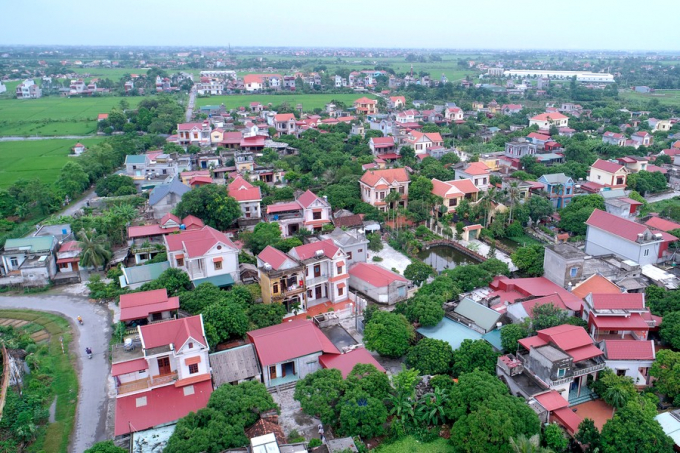
View from above of Ninh Giang (Hai Duong province), a new rural district recognized recently.
According to the Ministry of Agriculture and Rural Development (MARD), up to now, the country has 59 provinces and cities organizing the evaluation and classification of OCOP products. 57 localities decided to officially recognize the results in which 4,469 out of 6,210 products in the OCOP program rated and recognized 3-star or more.
Currently, the National OCOP Council is organizing the evaluation and rating for 43 potential 5-star OCOP products registered by localities.
All OCOP products meet standards of quality, food safety, diversity in designs and packaging; they are eco-friendly and meet different needs of customers and markets.
Many big supermarkets and companies have chosen and prioritized the OCOP products to put into their distribution system.
Especially, a number of OCOP products which are innovated to increase their quality have reached the export markets. As a result, OCOP products after being recognized, saw an increase in value, helping the OCOP entities expand the scale of production and the turnover.
At the same time, the program of OCOP also contribute to preserving and promoting around 2,000 traditional craft villages and cultural values for economic development in the rural areas.
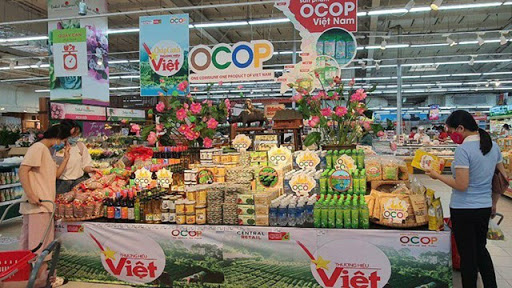
OCOP products of Vietjnam.
The trend which OCOP product associated with the models of rural tourism and community-based tourism is increasingly is developing in a positive way and expanded to many localities.
According to the MARD, the program’s goal for the 2021-2025 period is that the whole country will have at least 10,000 OCOP products recognized as 3-star or more, of which at least 3% of OCOP products will reach 5-star; strive to have at least 30% of OCOP entities establishing a closed value chain; at least 50% of rural craft villages will have OCOP products, contributing to preserving and developing traditional villages. The percentage of trained labors with degrees and certificates working at OCOP entities is at least 20%.
“The national target program on building new-style rural areas has been deployed for 10 years since 2011. So far this program has gone through two phases.
In the 2011-2016 period, the program focused on investment in infrastructure.
In the period of 2016-2020, in accordance to the direction of the Central Steering Committee, the program focused on the core contents of new-style rural area building, especially the content of production development to increase income for local people.
Based on that orientation, on May 7th, 2018 the Prime Minister approved Decision No.490 on "One Commune One Product" program or OCOP program for short.
Based on the experience that Quang Ninh province had after implementing the program since 2013, the Central Steering Committee learnt lessons to deploy the program. The first time the program was implemented on a large scale was in 2018.
So far, we have deployed the program for nearly 3 years”, said Mr. Nguyen Minh Tien, head of the Central Coordination Office (CCO) for New-style Rural Area Building under the MARD.
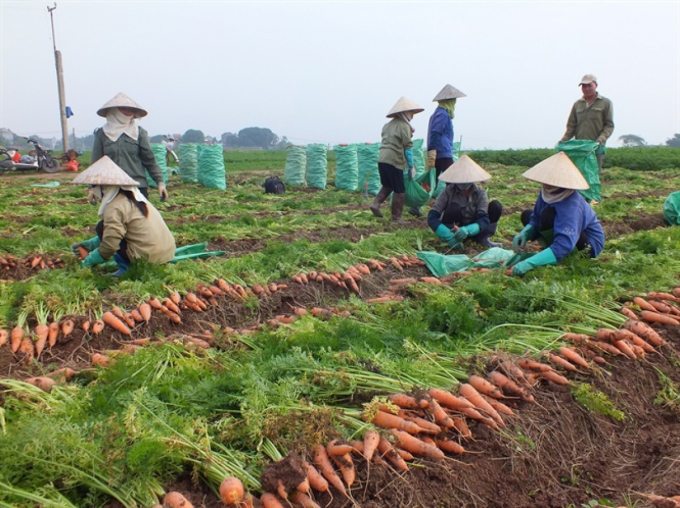
Carrot is the OCOP product produced in Hai Duong province.
Up to now, 63 provinces and cities in Vietnam have approved the OCOP project at the provincial level. Particularly, 60 out of 63 localities evaluated, rated, classified the OCOP products.
According to Tien, in Decision No.490 Vietnam only set the target of 2,460 products with 3-star or more, but so far the number of the OCOP products earning the target are 4,733, of which 63% are rated 3-star, 28% rated 4-star and the rest are reviewed for 5-star ratings.
The OCOP program not only exceeded the target set by the Government in terms of quantity but more importantly it was a pervasive phenomenon. OCOP received the active response and participation of many localities and entities, help exploiting the advantages of each region, especially specialties in the inconvenient areas which are considered as underprivileged regions such as Son La, Lai Chau, Cao Bang, Bac Kan...
Thank to that, the revenue of OCOP entities also increased. CCO estimated that two-thirds of the OCOP entities increased their revenue by 15-17% after participating the OCOP program. In particular, the prices of the products rose by at least 12%.
At present, we have 2,783 OCOP entities of which women account for 39% while we know that only 24% of business owners in Vietnam are women. If we make a comparison, we will see that this is a big success.
The pervasiveness of the OCOP program makes it not only developing the rural economy but also becomes an inspiring phenomenon; thereby contributing to the preservation of traditional cultural values and specialties of each region.
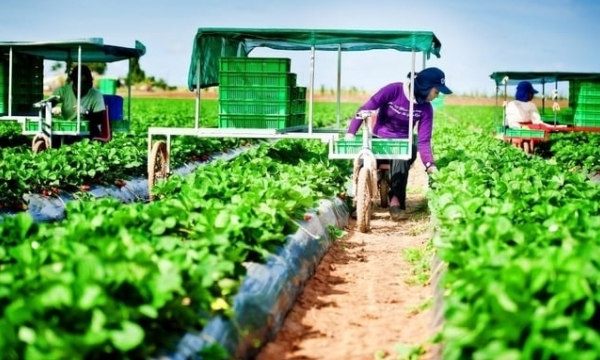
(VAN) According to the Ministry of Labor, Invalids, and Social Affairs, there has been a rise in fraudulent activities involving agricultural employment opportunities in Australia.
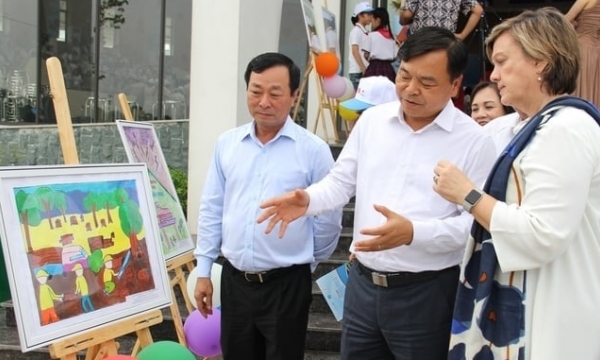
(VAN) According to Deputy Minister Nguyen Hoang Hiep, anticipatory action is a new approach in disaster management, with the aim of enhancing disaster prevention and preparedness.
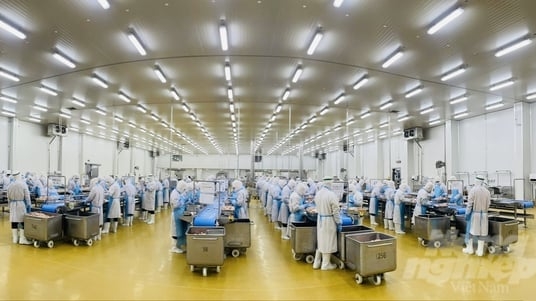
(VAN) The Ministry of Agriculture and Rural Development, in coordination with Tay Ninh Provincial People's Committee, organized a conference on May 18 to promote the export of animals and animal products.
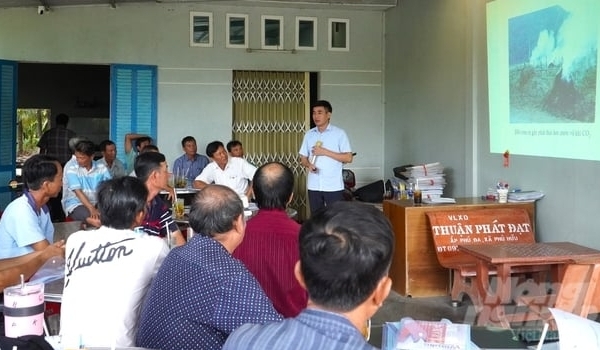
(VAN) From May 17-23, the National Agricultural Extension Center (NAEC) conducts training classes on the advanced rice farming process at 5 localities piloting for the 1 million ha of high-quality rice scheme.
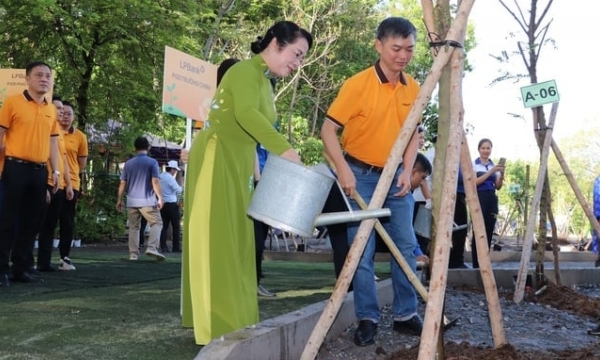
(VAN) Planting and expanding green spaces is a crucial effort to mitigate and adapt to the impacts of climate change, thereby creating a clean and livable environment.
/2024/05/17/5720-1-134847_782.jpg)
(VAN) EcoTraceTech - System for measuring CO2 and CH4 emissions from rice plants is the startup idea of a group of Can Tho University students.
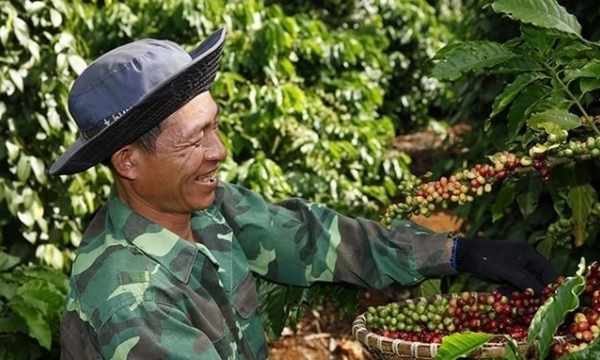
(VAN) The NESCAFÉ Plan by Nestlé Vietnam in the Central Highlands together with MARD aims to support coffee farmers in regenerative agriculture.